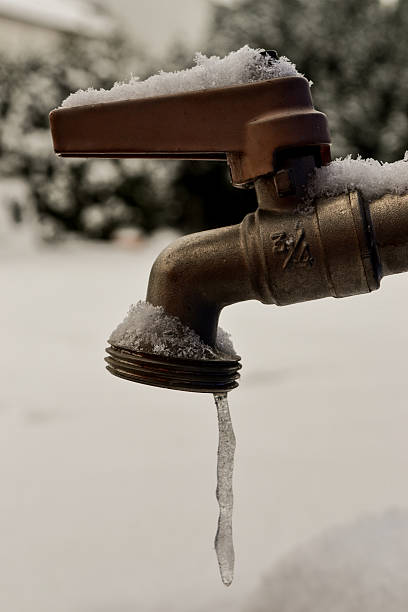Important Tips to Prevent Frozen Plumbing in Winter
Important Tips to Prevent Frozen Plumbing in Winter
Blog Article
Just how do you really feel in relation to How To Avoid Freezing Pipes?

Cold weather can damage your plumbing, especially by freezing pipelines. Here's how to stop it from taking place and what to do if it does.
Introduction
As temperature levels decrease, the risk of frozen pipes boosts, potentially causing expensive repairs and water damages. Recognizing just how to prevent icy pipes is essential for homeowners in chilly climates.
Avoidance Tips
Insulating prone pipes
Wrap pipelines in insulation sleeves or use warmth tape to protect them from freezing temperatures. Concentrate on pipelines in unheated or outside locations of the home.
Home heating techniques
Keep indoor rooms properly heated up, specifically locations with pipes. Open cupboard doors to enable cozy air to flow around pipelines under sinks.
Just how to recognize icy pipelines
Seek reduced water flow from faucets, uncommon odors or sounds from pipes, and noticeable frost on exposed pipelines.
Long-Term Solutions
Structural changes
Consider rerouting pipelines away from outside walls or unheated areas. Include added insulation to attics, cellars, and crawl spaces.
Updating insulation
Invest in high-grade insulation for pipes, attics, and walls. Correct insulation aids maintain constant temperature levels and reduces the threat of icy pipes.
Securing Outside Plumbing
Yard hoses and outside faucets
Detach and drain garden hoses prior to winter months. Mount frost-proof spigots or cover outdoor taps with protected caps.
Comprehending Frozen Pipelines
What triggers pipelines to freeze?
Pipelines ice up when subjected to temperatures below 32 ° F (0 ° C) for extended durations. As water inside the pipelines ices up, it expands, putting pressure on the pipeline walls and possibly causing them to break.
Threats and problems
Icy pipelines can cause water disturbances, residential or commercial property damages, and pricey fixings. Burst pipes can flooding homes and trigger comprehensive structural damages.
Indications of Frozen Pipes
Recognizing frozen pipes early can stop them from rupturing.
What to Do If Your Pipes Freeze
Immediate activities to take
If you think icy pipes, maintain faucets open to eliminate pressure as the ice thaws. Use a hairdryer or towels soaked in warm water to thaw pipes gradually.
Conclusion
Stopping icy pipes needs aggressive steps and fast responses. By comprehending the reasons, indicators, and preventive measures, property owners can safeguard their pipes throughout winter.
5 Ways to Prevent Frozen Pipes
Drain Outdoor Faucets and Disconnect Hoses
First, close the shut-off valve that controls the flow of water in the pipe to your outdoor faucet. Then, head outside to disconnect and drain your hose and open the outdoor faucet to allow the water to completely drain out of the line. Turn off the faucet when done. Finally, head back to the shut-off valve and drain the remaining water inside the pipe into a bucket or container. Additionally, if you have a home irrigation system, you should consider hiring an expert to clear the system of water each year.
Insulate Pipes
One of the best and most cost-effective methods for preventing frozen water pipes is to wrap your pipes with insulation. This is especially important for areas in your home that aren’t exposed to heat, such as an attic. We suggest using foam sleeves, which can typically be found at your local hardware store.
Keep Heat Running at 65
Your pipes are located inside your walls, and the temperature there is much colder than the rest of the house. To prevent your pipes from freezing, The Insurance Information Institute suggests that you keep your home heated to at least 65 degrees, even when traveling. You may want to invest in smart devices that can keep an eye on the temperature in your home while you’re away.
Leave Water Dripping
Moving water — even a small trickle — can prevent ice from forming inside your pipes. When freezing temps are imminent, start a drip of water from all faucets that serve exposed pipes. Leaving a few faucets running will also help relieve pressure inside the pipes and help prevent a rupture if the water inside freezes.
Open Cupboard Doors
Warm your kitchen and bathroom pipes by opening cupboards and vanities. You should also leave your interior doors ajar to help warm air circulate evenly throughout your home.

I have been very interested in How to Prevent Your Pipes From Freezing and I really hope you enjoyed reading our post. For those who liked our page kindly do not forget to share it. We truly appreciate reading our article about How To Avoid Freezing Pipes.
Book Service Now Report this page